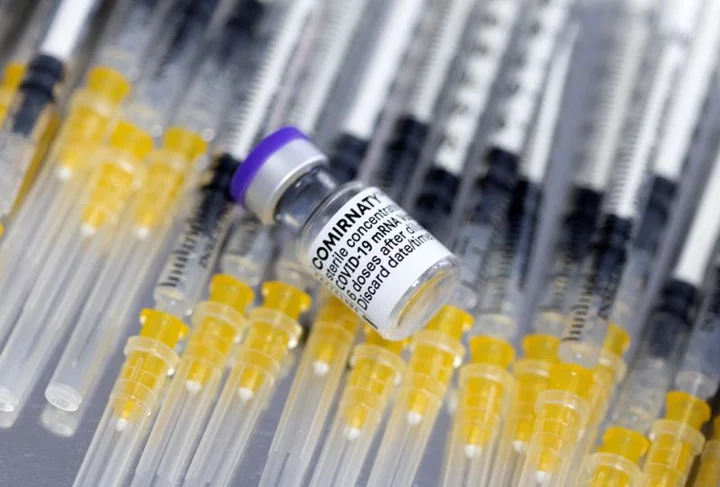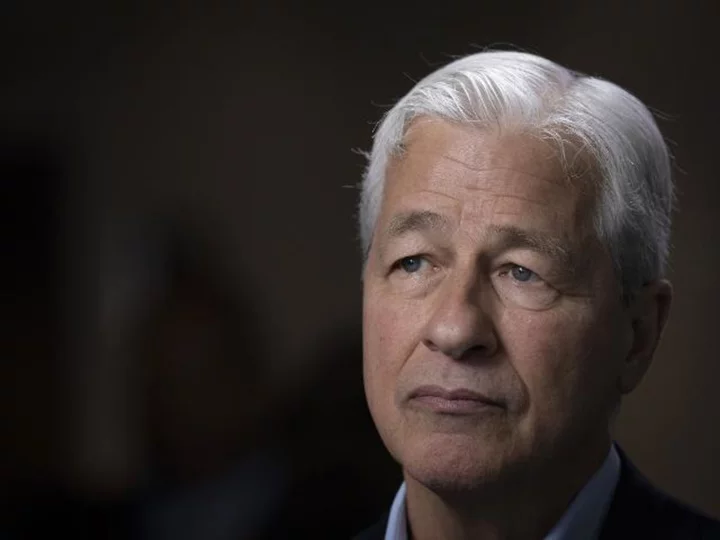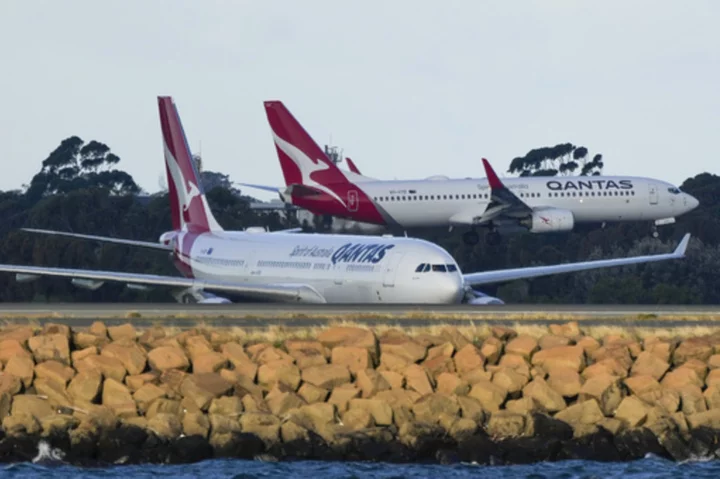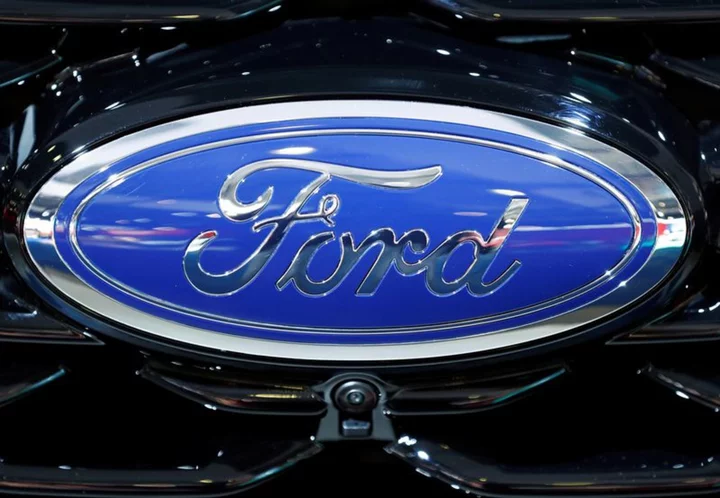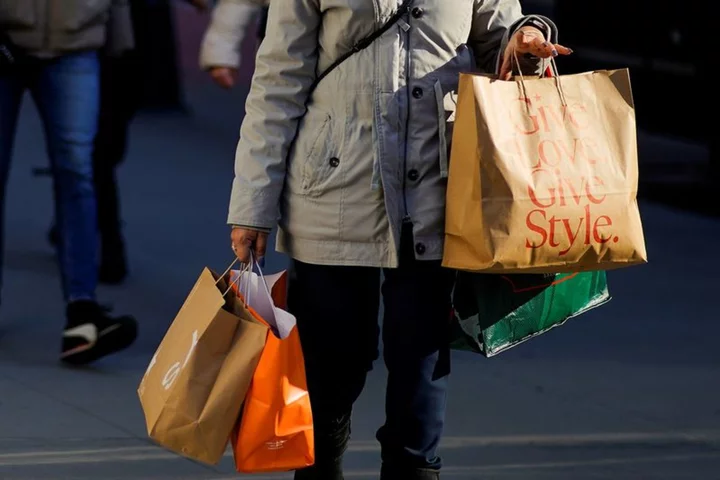By Michael Erman and Manas Mishra
(Reuters) -Pfizer on Monday set off a fresh round of concern about the size of the COVID-19 vaccine and treatment market in the long term, driving down shares of its German partner BioNTech and smaller rival Moderna.
On Friday, Pfizer reduced its full-year forecast for sales of its antiviral COVID treatment Paxlovid by about $7 billion, and for the vaccine it developed with BioNTech by about $2 billion due to a plunge in the use of pandemic-related products.
Moderna, the company's primary competitor in COVID vaccines, said on Monday that it was currently comfortable with its outlook for demand.
Pfizer CEO Albert Bourla said on Monday that around 17% of the U.S. population will get updated COVID vaccines during the current vaccination campaign, in line with last year, but far below rates seen when vaccines first emerged in the spring of 2021.
"We right now are in the middle of COVID fatigue, where everyone wants to forget about the disease," he said Monday.
When asked about future years, Bourla said the company expects this year's demand to be the base rate for future years but that it was still watching the current campaign to be sure.
"Whatever will be the vaccination rate here, it is our expectation will become a solid foundation that will be the vaccination rate for the years to come," he said.
Pfizer's stock rose 3.6% on Monday, while shares of BioNTech dropped 7.3% in Frankfurt. Moderna was down 2.8% in New York.
Moderna, in a statement Monday, maintained its current revenue forecast of $6 billion to $8 billion for its COVID vaccine for 2023.
Pfizer said it will take a non-cash charge of $5.5 billion in the third quarter due to $4.6 billion in inventory write-offs for Paxlovid and $900 million of write-offs for the vaccine, while BioNTech flagged write-downs of up to 900 million euros ($947 million).
A BioNTech spokesperson on Monday declined to comment on the company's current 2023 outlook.
Analysts said Pfizer's COVID sales forecast cut was bigger than expected. Jefferies analyst Michael Yee said the lowered outlook implies lower sales for Moderna, estimating that only roughly 35 million to 40 million people would get vaccinated in the winter, versus Moderna's expectation for 50 million shots.
BioNTech, which relies on vaccine-related profit-sharing payments from Pfizer for much of its revenue, said the write-offs would also reduce its 2023 revenue.
The company added that it had been told by Pfizer that most of the write-offs relate to raw materials, as well as to inventories of vaccine versions that are older or different from the upgraded one currently in use.
Pfizer's shares, which are down about 37% this year, trade 9.8 times their 12-month forward earnings estimate, while BioNTech trades at 26.7, according to LSEG data.
($1 = 0.9498 euro)
(Reporting by Ludwig Burger and Rachel More in Frankfurt, Michael Erman in New York, and Bhanvi Satija and Manas Mishra in Bengaluru; Editing by Miranda Murray, Jason Neely, Shounak Dasgupta and Jonathan Oatis)

